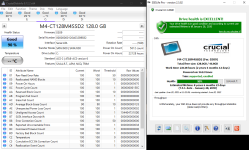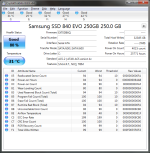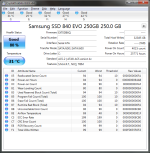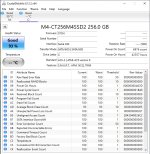Actually people would be reporting it right here on these forums if their windows drive SSDs were degrading.
Evidently, it never happens at all.
Hard drives generally fail much quicker than these SSDs degrade, and at current prices so what if you need to spend £20-40 every 5 years at least to replace one?
'Replacing windows is hard / sucks' ... If you aren't already keeping a backup of your user folder at least thats entirely your fault. Typically hard drives fail much quicker than SSDs.
I don't think they would be though, because the lifetime wear doesn't really tell you much about the condition of the SSD. Most SSD deaths (at least, in home systems) happen way before the flash has suffered excessive wear (according to the tools you used in the OP).
In the absence of data for what exactly it is that causes a failure, there are precautions like disabling search indexing, moving the page file, etc, but as far as I know, there are few facts and even if you RMA, you don't get a detailed report about what failed or why.
I do keep backups, by the way, but activation status can't usually be backed up the same way and regardless, replacing a boot drive is always a pain I'd rather not have.





